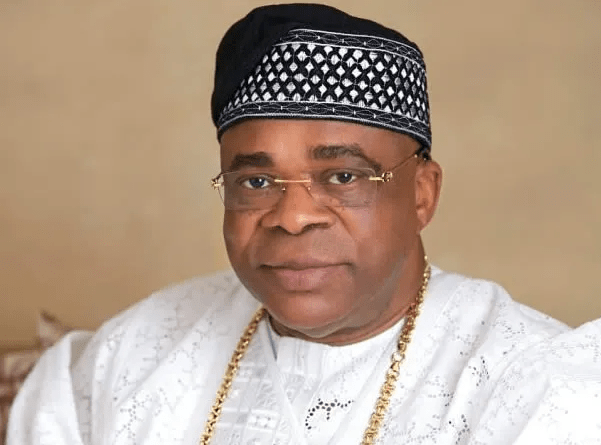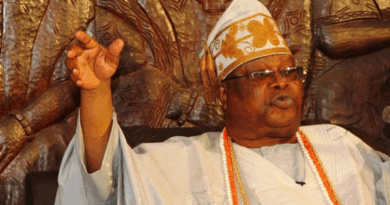Owa Obokun Installation Without Traditional Rites: A Disregard for Yoruba Culture
By Adejola Adeyemi Crown
The installation of Owa Obokun Elect, Loja Clement Adesuyi Haastrup, without observing the necessary traditional rites and “ipebi” process is a significant aberration and an attack on the deeply rooted cultural and traditional heritage of Yorubaland. Traditionally, the ascension of a king is not merely a political or administrative process but a sacred and spiritual journey that confers legitimacy and authority on the new monarch. By bypassing this time-honored practice, the cultural essence of Yoruba kingship is eroded, and its sacred foundation is undermined.
Loja Clement Adesuyi Haastrup, who emerged as Owa Obokun Elect on Friday, was approved the same day by the Osun State Government and is set to be presented with the staff of office today, Sunday, December 29, 2024. This rushed timeline—less than 72 hours—has raised significant concerns and sparked widespread disapproval. Traditionally, the process of installing a king in Yorubaland is meticulous, involving spiritual rites, consultation with the Ifa oracle, and a purification process known as “ipebi.” This process prepares the king-elect for the enormous responsibilities of leadership, both physical and spiritual, and aligns him with the ancestral and divine order of kingship.
The “ipebi” is not merely ceremonial; it is the foundation of the king’s authority and legitimacy. It symbolizes his initiation into the mysteries of kingship and the spiritual responsibilities that come with the throne. Skipping this sacred process undermines the sanctity of the Owa Obokun stool and reduces it to a mere administrative appointment. Such an act disregards the customs and traditions that have sustained the Yoruba people for centuries and diminishes the spiritual significance of the king’s role as a custodian of culture and intermediary between the people and the divine.
The presentation of the staff of office, scheduled for today, is traditionally the culmination of a sacred process. It signifies the approval of both the earthly and spiritual realms and confirms the monarch’s legitimacy. By rushing to present this staff without observing the necessary rites, the Osun State Government and other stakeholders have disregarded the importance of Yoruba cultural heritage and the sanctity of its traditions. This act sends a troubling message that tradition can be sidelined for the sake of expediency, setting a dangerous precedent for the future.
The hasty nature of this installation raises critical questions. Why the rush to present Loja Clement Adesuyi Haastrup with the staff of office in less than 72 hours? What considerations informed the decision to bypass the traditional rites that have historically been the cornerstone of Yoruba kingship? These questions demand answers, as the actions of the Osun State Government appear to prioritize political expediency over the cultural and spiritual values of the people.
Kingship in Yoruba culture is not merely a ceremonial role but a sacred institution that embodies the identity, unity, and spiritual essence of the community. The king is seen as the custodian of culture, the link between the physical and spiritual realms, and a symbol of continuity and stability. By circumventing the traditional processes, the sanctity of this institution is compromised, and its role as a unifying force is diminished.
This development also has implications for the legitimacy of Loja Clement Adesuyi Haastrup’s reign. In Yoruba tradition, legitimacy is not solely derived from governmental approval but from the acceptance of the people and the spiritual realm’s endorsement. When these foundational elements are ignored, the monarch may struggle to gain the full respect and loyalty of the people, leading to a fragmented and unstable leadership.
The role of traditional institutions in modern governance must be carefully balanced. While governments have a role in approving and recognizing traditional rulers, this should not extend to interfering with the sacred processes that underpin these institutions. Traditional rulers are not mere extensions of the government; they are independent custodians of culture and heritage. Their installation processes should reflect this independence and respect for tradition.
The implications of this abnormality extend beyond the Owa Obokun stool. It sets a dangerous precedent that could encourage others to disregard tradition in the pursuit of political or personal agendas. If allowed to continue, this trend could lead to the gradual erosion of Yoruba culture and heritage, depriving future generations of the guidance and inspiration derived from these traditions.
The culture and traditions of the Yoruba people are not just relics of the past; they are living practices that define the community’s identity and cohesion. Disregarding them for expediency is a disservice to the ancestors who established these traditions and the future generations who rely on them for a sense of identity and belonging.
Across Yorubaland and Nigeria, there have been increasing instances where traditional processes are circumvented in favor of political considerations. This troubling trend calls for a collective effort to reaffirm the importance of culture and tradition in governance and community identity. Governments, traditional institutions, and communities must collaborate to ensure the preservation and respect of these sacred processes.
The installation of Loja Clement Adesuyi Haastrup as Owa Obokun without observing the necessary traditional rites is a grave anomaly that must not be allowed to stand. It is an attack on the cultural and traditional values of Yorubaland and sets a dangerous precedent for the future. The presentation of the staff of office should be the culmination of a thorough and sacred process, not a rushed act driven by political expediency.
The Osun State Government and all stakeholders must recognize the gravity of this situation and take immediate steps to rectify this anomaly. The preservation of Yoruba culture and tradition is not just the responsibility of traditional rulers but a collective duty that requires the commitment and respect of all members of the community.



